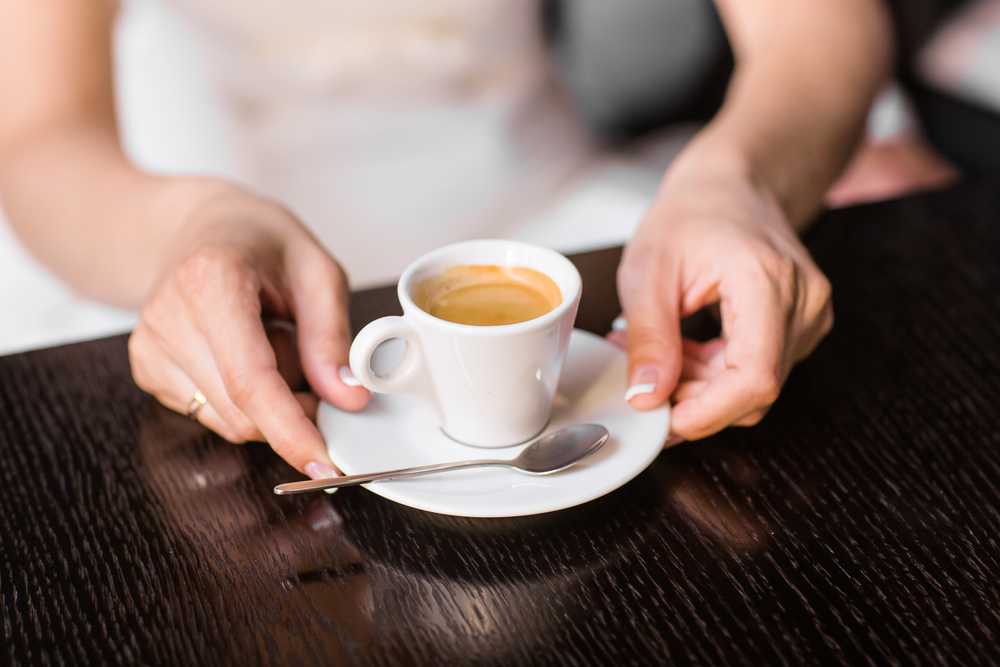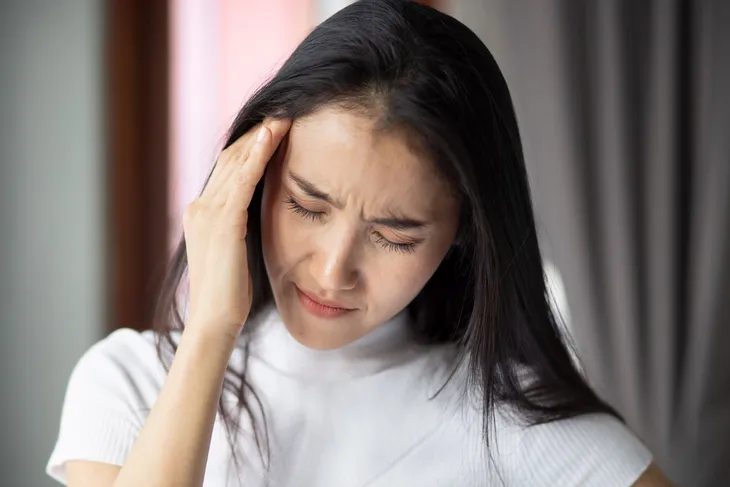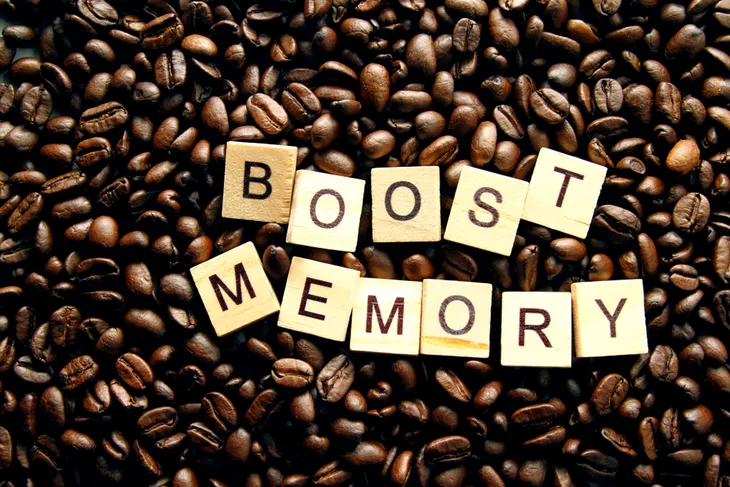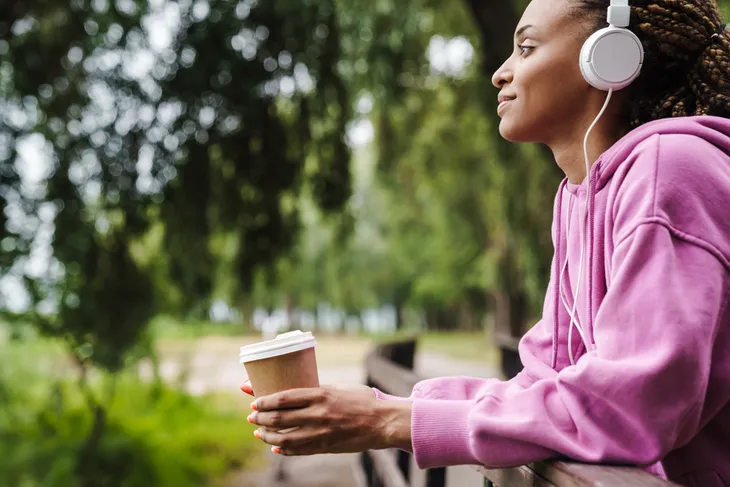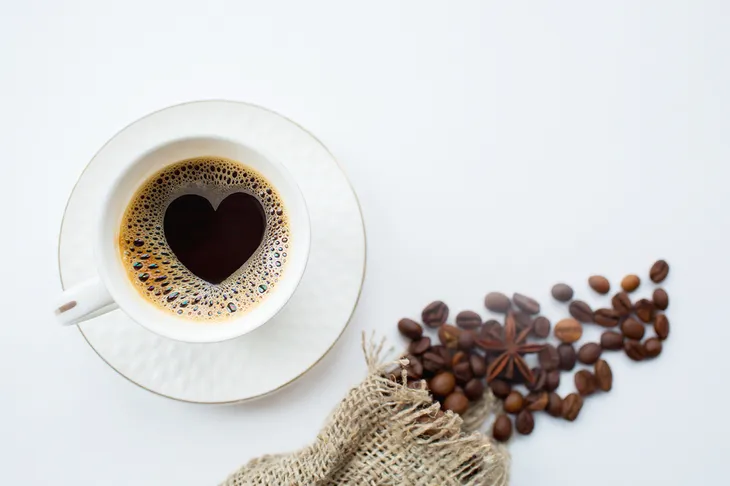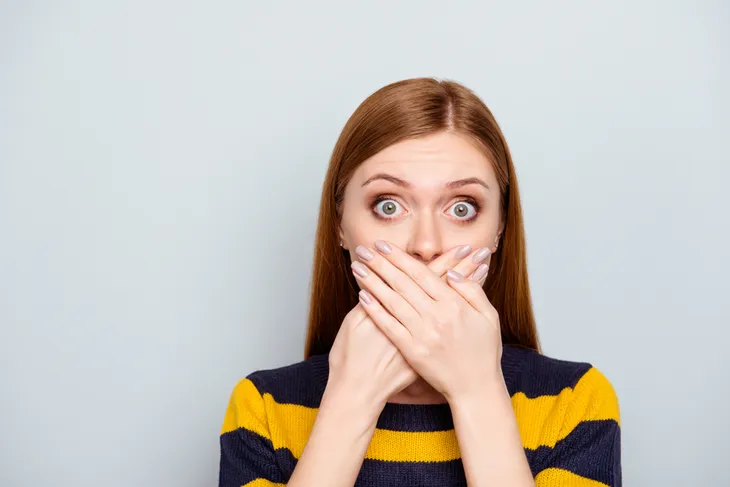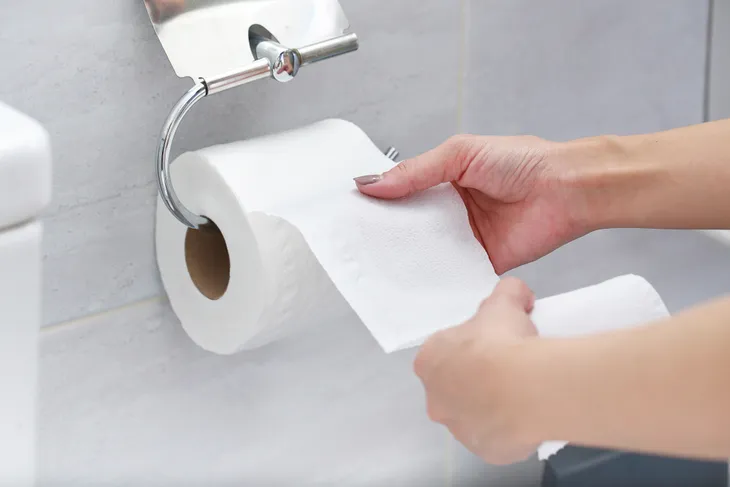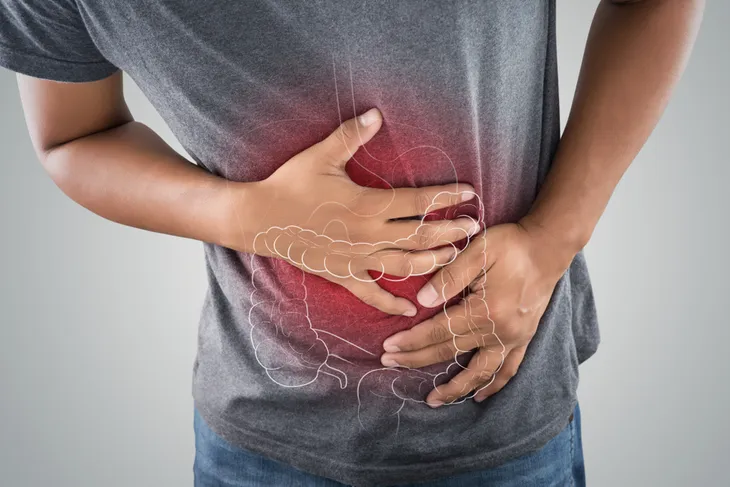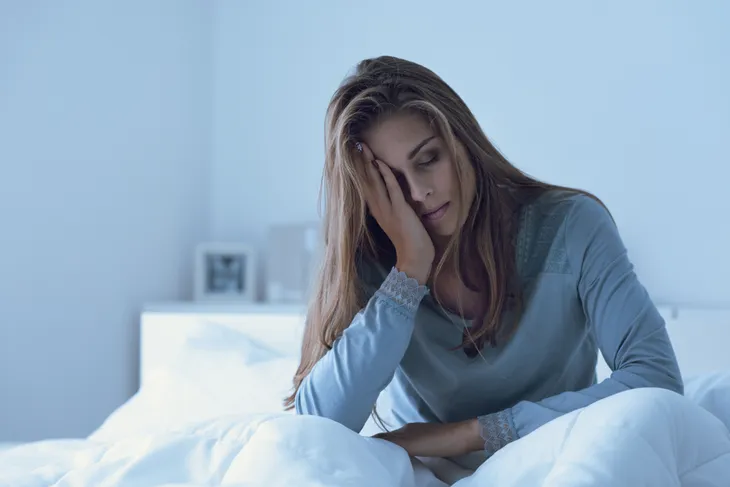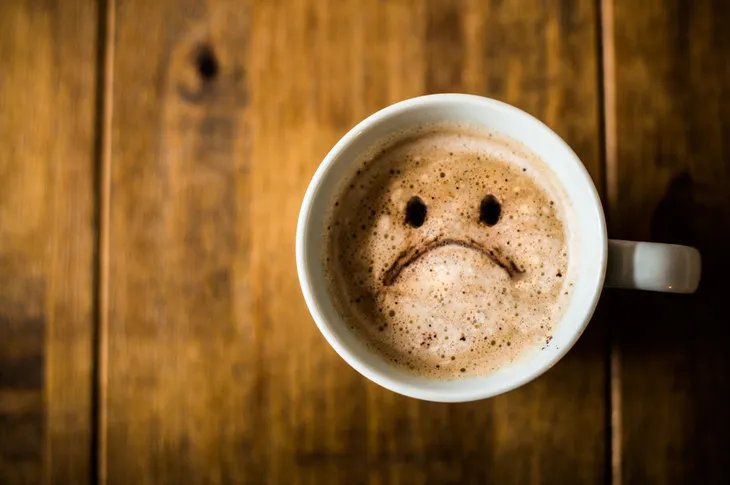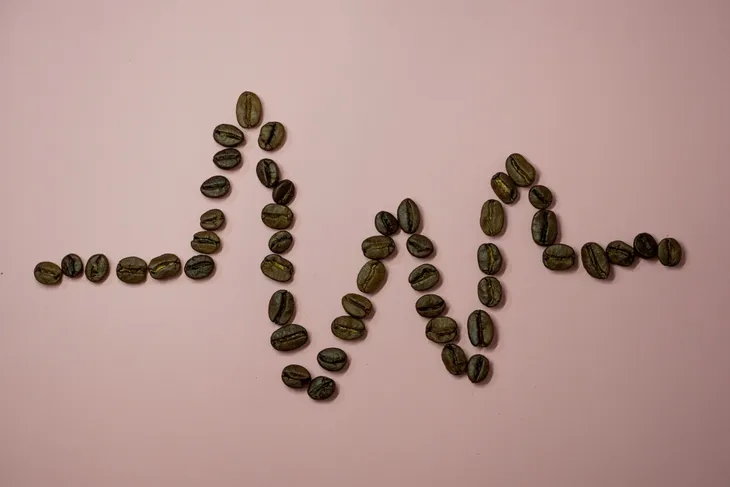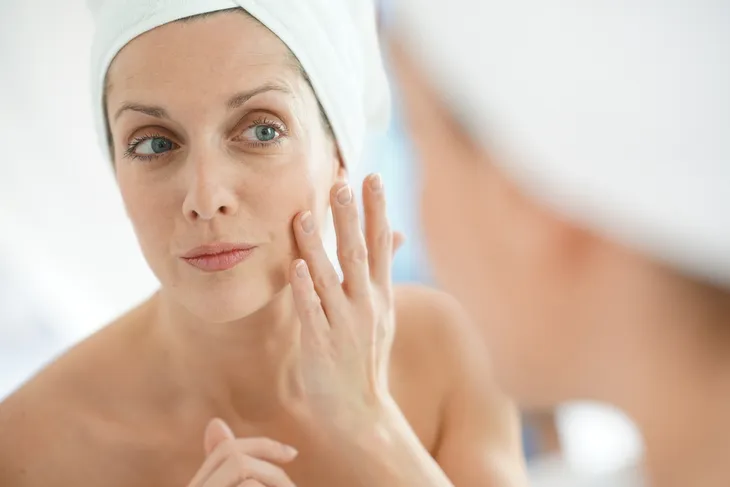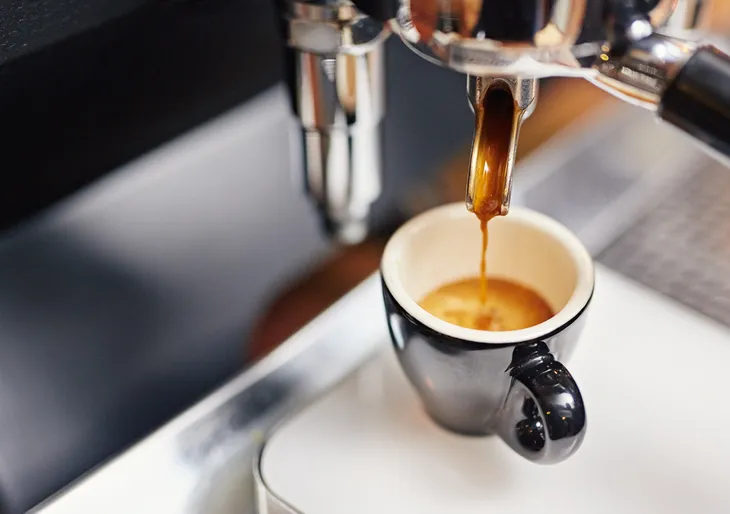- Espresso is a highly concentrated coffee with high levels of caffeine. It’s the perfect option for people who needs a quick boost of energy.
- Many of the benefits and side effects of espresso come from its high caffeine content.
- Some of the most notable benefits are treating headaches, improving concentration and boosting memory, as well as providing fuel and energy to workout.
- A couple downsides are potential sleep issues, digestive problems, heart health, staining teeth, and contributing to poor skin and heart health.
Most people who love coffee feel very passionately about it! While there is certainly such a thing as bad coffee, oftentimes it’s more of a habitual thing. For example, some people might like to have it first thing in the morning while reading the news. Others during their commute to work, or some just sitting quietly in their kitchen. Whatever it may be, it’s often an important part of their day.
For those who need a little extra pick me up or don’t have time to sip a hot coffee, they opt for an espresso. According to thekitchn.com, espresso is just a highly concentrated coffee made with a 1:2 ratio of finely ground coffee beans and water. It provides that caffeine kick we’re all looking for a lot faster! But just like drinking coffee, there may be some pros and cons to espresso. Here’s a look into both the benefits and side effects…
Help Treat Headaches
Caffeine can help treat tension headaches, says WebMD. This is why it’s often an ingredient in pain relievers. This is because caffeine helps reduce inflammation which is what provides that much needed relief. It can also help medications work faster and better when consumed alongside one another. According to WebMD, it can make pain relievers 40-percent more effective.
Just be careful because too much caffeine can also cause headaches. “Since caffeine narrows the blood vessels that surround your brain, when you stop taking it they expand again, and that can cause pain,” writes the source. There’s also such thing as caffeine withdrawal for people who consume caffeine regularly.
Boost Memory and Improve Concentration
There’s a reason people bring a cup of coffee along with them before tackling a mountain of work. Mashed explains that espresso can help improve our attention span thanks to a neurochemical interaction. “Espresso, as well as coffee, causes an increased concentration of dopamine in the brain, particularly the areas linked to attention,” writes the source. However, this benefit is short term and should be done in moderation. Overdoing it can make a person jittery which will end up having the opposite effect and make it harder to concentrate.
The memory boosting benefits are likely related to the fact that drinking espresso can help improve concentration. A study done by the University of California which found that participants were able to increase memory consolidation by drinking two espressos. Improved long-term memory was another added benefit of this. It’s important to note that the study also found there is no need to drink more than two espressos. There weren’t any further improvements past these two cups.
Fuel a Workout
Espresso as it is doesn’t really contain a lot of calories. However, once a person gets into the frappuccinos, flavored coffee, or adding creamers to their drink it can quickly go from being a cup of coffee to a liquid dessert full of sugar. Without any added sugars and flavors, espresso may aid with weight loss, says Mashed.
In fact, it can even go a step further and help fuel a workout! A study published in the Medicine and Science in Sports Journal found that caffeine made workouts “less strenuous by lowering the perceived level of exertion by more than 5-percent. In addition, the espresso reduces the level of muscle pain the body perceives,” writes Mashed. If you’re looking for a quick energy boost, Eat This, Not That! suggests having one shot of espresso (75-milligrams of caffeine) before a 30-minute workout.
Hinder Heart Health
While a person might love espresso with all their heart, this doesn’t mean it helps it. A 2020 study published in the European Journal of Preventive Cardiology found that drinking unfiltered coffee (such as espresso) may increase a person’s chance of passing away from heart disease, ischemic heart disease, or stroke. Why is this? Bonnie Taub-Dix, RDN and author tells Live Strong that it likely has to do with a substance in espresso that may increase LDL (bad) cholesterol. This substance is diterpenes and it’s usually strained out in filtered coffee.
To paint a picture on the difference between espresso and filtered coffee, the Harvard Health Publishing states that one cup of espresso contains 30 times more diterpenes than the same amount of a filtered brew. This is worrisome because high cholesterol levels are what lead to heart disease and stroke which also happen to be the two leading causes of fatalities in the U.S., according to the Centers for Disease Control and Prevention (CDC).
Stain Teeth
We might need that cup of coffee in order to put a smile on our face in the morning, but it’s also what’s contributing to the discoloration of it. The American Dental Association warns that caffeine can lead to a dry mouth by robbing it of all our saliva. While this might not seem like a big deal, the source explains that saliva is what protects our tooth enamel.
While the caffeine is certainly to blame for most of the other side effects on this list, the staining is due to another ingredient known as tannins. Healthline explains that coffee contains tannins, a type of polyphenol that breaks down in water. It can cause color compounds to stick to our teeth, leaving an unsightly yellow stain. “The acids in espresso can also erode tooth enamel over time,” writes Health Digest. This can be made worse if someone brushes their teeth immediately after having a cup of coffee as the toothbrush scours the teeth with acidic coffee.
Healthline recommends waiting 30-minutes between brushing and that last cup of espresso. You might also consider rinsing with water first.
Frequent Trips to Bathroom
There’s a reason people often have to go to the washroom after drinking a cup of coffee or espresso. According to Eat This, Not That!, both have a well-known laxative effect due to the release of gastrin, a hormone the stomach produces to speed up activity in the colon. While some people might use caffeine as a way to move things along, be careful not to overdo it. Drinking too much caffeine can cause loose stools and even diarrhea, notes the source.
Another reason for running to the bathroom is because espresso may contribute to dehydration and have a diuretic effect, says Eat This, Not That! This means people will feel the need to urinate more frequently. “Diuretics are substances that cause your body to make more urine than usual, which isn’t necessarily harmful, but worth being mindful of before a long car ride,” writes the source.
Digestion Problems
In relation to causing frequent trips to the bathroom, drinking espresso may also cause some digestion problems. For example, someone might notice a stomachache after drinking a shot of espresso. The reason for this is the high caffeine content, explains Taub-Dix to Live Strong.
Caffeine causes trouble for our digestive system because it stimulates the GI tract. For people with a sensitive digestion system or those with digestive disorders like gastroesophageal reflux disease (GERD) or irritable bowel syndrome (IBS), a highly concentrated amount of caffeine, like an espresso shot, can cause some gastrointestinal distress, explains Taub-Dix to the source. Caffeine can increase the amount of stomach acids which will impact people with GERD and it can speed up the digestive tract which is worrisome for people with IBS.
Sleep Issues
This one likely isn’t all that surprising, but drinking too much caffeine (exactly what an espresso is full of) can result in poor sleep quality. This is because it may keep people up later than they want or contribute to a restless sleep, says Eat This, Not That! “Caffeine can impact the onset of sleep and reduce sleep time, efficiency, and satisfaction levels,” writes the National Sleep Foundation. It also reduces time spent in slow-wave sleep, a deep restorative phase of our sleep cycle.
While everyone has a different tolerance level for caffeine, Lisa R. Young, PhD, RDN tells the source, “I recommend cutting off caffeine by noon. Some people can go till early afternoon.” Also, according to a 2016 study published in Nutrients, people should try to limit their consumption. Their findings showed people who consumed only 125.2-miligrams of caffeine (as opposed to 192.1-milligrams) had higher scores and better sleeping habits.
Anxious and Irritable
Another potential side effect is anxiety and irritability. The anxiety comes from the body releasing adrenaline. “Caffeine increases your alertness by blocking the effects of adenosine, a brain chemical that makes you feel tired,” writes Eat This, Not That! In fact, there’s even a disorder called caffeine-induced anxiety disorder recognized by the Diagnostic and Statistical Manual of Mental Disorders (DSM-5) and published by the American Psychiatric Association. This is a condition where caffeine interferes with daily functioning.
While people often feel irritable before their caffeine, too much caffeine can also have this effect. The San Francisco Chronicle writes, “consuming 500 to 600-miligrams of caffeine…can lead to mood changes such as anger.” It goes on to explain that caffeine causes poor sleep which can lead to grouchiness the next day. It also triggers the release of adrenaline — the fight or flight hormone. “This caffeine-induced adrenaline rush causes your emotions, rather than rational thought, to dictate your behavior,” writes Health Digest.
Increase Your Heart Rate
A racing heartbeat is nothing to joke about! When this happens it can be quite alarming and unsettling. While we drink caffeine to give us a much needed boost of energy or alertness, there is such thing as too much. According to Eat This, Not That!, it can alter the body’s heartbeat rhythm. When this happens it’s called atrial fibrillation.
The same source points out this issue has been reported in people after they consuming energy drinks with high doses of caffeine. Furthermore, Taub-Dix tells LiveStrong that caffeine acts as a stimulant and espresso contains a lot of caffeine. A high intake of caffeine may raise a person’s blood sugar which can also trigger nervousness, heart palpitations, the jitters, and insomnia, explains Harvard Health Publishing.
Bad for Your Skin
Drinking espresso might help provide energy for the day, but it’s definitely not going to give us a healthy glow. New York City dermatologist Debroah Wattenberg told Today, “Caffeine…[act]s like a diuretic and prevent[s] you from holding on to water, so your skin looks sort of prune-like. It can get dry and get washed out.” Another blow to our skin health is a lack of sleep which is another potential side effect of drinking espresso.
To provide even more explanation on this topic, a 2014 study published in Drug Design, Development and Therapy found that caffeine prevents our skin cells from producing collagen. Why is this important? Collagen is a protein that gives our skin structure and suppleness. Caffeine prevents this production by “inhibiting an enzyme needed for collagen production called prolidase,” writes Health Digest. “Caffeine also appeared to prevent proper DNA synthesis within these cells.”
Moderation is Key
You’ve probably gathered after reading most of this article that drinking espresso isn’t bad for our health. However, moderation is key. There is such thing as too much so people need to be mindful and responsible about their caffeine consumption. How do we know how much is too much?
It’s hard to make an overarching consumption limit because everyone has different tolerance levels. A good starting point would be a limit of two cups per day, and not consuming any past noon. “Many people who are healthy can drink up to 400-milligrams of caffeine a day. That’s around four cups of brewed coffee or 5-6 espressos,” explains Young to Eat This, Not That!
